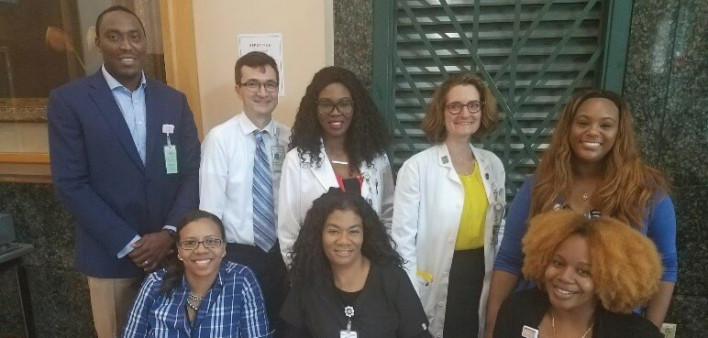Cross-posted from the HHS.gov Hepatitis blog
The hepatitis C virus (HCV) is common, deadly and curable. At Grady Health System in Atlanta, GA, our sights are set on HCV micro-elimination. Following the principles of the National Viral Hepatitis Action Plan, our goals are to improve the health of people living with viral hepatitis while reducing health disparities, and we aim to achieve these goals through micro-elimination at our health system level. There is a lot to learn from programs and strategies being undertaken by partners across the nation that can be useful when adapted to other clinics and health systems.
What is Grady Liver Clinic and how is it working toward hepatitis elimination?
Established in 1892, Grady’s mission is to improve the health of the community by providing quality, comprehensive health care in a compassionate and culturally competent manner. It remains committed to the indigent and underserved of Fulton and DeKalb counties. Grady is home to the Grady Liver Clinic (GLC), a unique model for hepatitis C care run and staffed by primary care physicians with expertise in hepatitis C treatment. It has become a model of excellence for non-traditional approaches to hepatitis C care as it improves access for patients with healthcare disparities. Using a multidisciplinary team approach including physicians, clinical pharmacists, nurses and patient navigators, the GLC approaches HCV micro-elimination with large scale HCV screening and linkage to care as well as treatment programs.
The GLC team implemented HCV screening in 2012 in response to new baby boomer screening recommendations from CDC. Using electronic health record prompts, provider education and opt out testing language, the screening program started in the hospital-based primary care center and over eight years has expanded to Grady’s network of:
- neighborhood health centers,
- hospital-based specialty clinics,
- the inpatient service, and
- the Emergency Department.
Unique features of the screening and linkage program include real-time, in-person linkage to care, including bedside education, for inpatients and patients in the Emergency Department. The program has tested over 35,000 patients for HCV, revealed a 9% prevalence of anti-HCV, and linked over 1,100 patients to care. Overcoming a barrier in the diagnosis and linkage process, we also successfully launched reflex HCV RNA testing for all positive anti-HCV tests which has increased our HCV RNA testing rate to nearly 100%.
HCV treatment is another key component of our micro-elimination effort. Based on the success of the screening program and the availability of effective, tolerable antivirals for HCV, the GLC program expanded in 2017 with the hiring of an HCV clinical pharmacist specialist, a pharmacy technician, a patient navigator, an advance practice provider, and a program coordinator. Key features of the treatment program include:
- a group education class,
- medication delivery to treatment visits,
- and personalized support by the treatment team during therapy.
With this robust program in place, the GLC now treats close to 500 patients annually with a 96% cure rate.
These screening and treatment programs have put us within reach of micro-elimination, but in order to realize our goals, we need to expand our programs thoughtfully to capture the hardest to reach patients. Plans currently under development include leveraging a newly developed HCV registry to optimize population management and track progress toward elimination goals, and launching a mobile testing and treatment unit to expand patient outreach. These new efforts, combined with the foundation of GLC’s screening and treatment programs will position us well to realize Action Plan goals and achieve micro-elimination.
To learn more about GCL, visit our website at https://www.gradyhealth.org/care-treatment/liver-disease-center/.
To learn more about hepatitis elimination efforts in the United States, visit Mapping Hepatitis Elimination in Action.








Comments
Comments